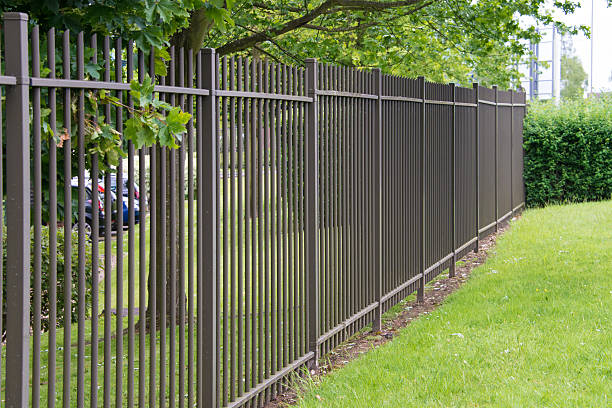Tankless Water Heaters: The Smart Home Solution
Tankless water heaters provide hot water only when needed, eliminating the energy waste of traditional tank models. These compact units heat water directly as it flows through the device, offering space-saving benefits and potentially lower utility bills. Understanding how these systems work and their installation requirements helps homeowners make informed decisions about upgrading their water heating system.

How Do Tankless Water Heaters Work?
Tankless water heaters, also known as on-demand water heaters, operate on a fundamentally different principle compared to traditional tank-based systems. When a hot water tap is turned on, cold water flows through a pipe into the unit. A gas burner or electric element then heats the water instantly. This process eliminates the need for a storage tank and the associated standby energy losses from keeping a large volume of water hot at all times.
The heating mechanism in tankless units is activated by the flow of water, ensuring that energy is only used when hot water is needed. This on-demand heating can lead to significant energy savings, especially in households with variable hot water usage patterns. Additionally, the absence of a tank means that these units can provide a continuous supply of hot water, which is particularly beneficial for larger families or homes with high hot water demands.
What Are the Benefits of Gas Water Heaters?
Gas water heaters, including tankless models, offer several advantages that make them a popular choice for many homeowners. One of the primary benefits is their efficiency in heating water quickly. Natural gas or propane-fueled units can typically heat water faster than their electric counterparts, which is particularly advantageous in tankless systems where instant hot water is the goal.
Another significant benefit of gas water heaters is their lower operating costs in many regions. While the initial installation cost may be higher, especially for tankless models, the ongoing energy expenses are often lower compared to electric units. This can result in long-term savings on utility bills. Gas water heaters also continue to function during power outages, providing an added layer of reliability for homeowners.
When Is Boiler Replacement Necessary?
Determining the right time for boiler replacement is crucial for maintaining an efficient and reliable heating system. Several factors can indicate that a boiler may need to be replaced:
-
Age: Most boilers have a lifespan of 10-15 years. If your boiler is approaching or exceeding this age, it may be time to consider replacement.
-
Efficiency: Older boilers are generally less efficient than modern models. If you notice a significant increase in your energy bills, it could be a sign that your boiler is losing efficiency.
-
Frequent repairs: If you find yourself calling for repairs more often, the cumulative cost of these fixes may outweigh the cost of a new, more reliable unit.
-
Inconsistent heating: Uneven heating or difficulty maintaining comfortable temperatures throughout your home can indicate that your boiler is struggling to meet your heating needs.
-
Strange noises or odors: Unusual sounds or smells coming from your boiler can be signs of serious issues that may warrant replacement rather than repair.
What to Consider for Water Heater Replacement?
When contemplating water heater replacement, several factors should be taken into account to ensure you choose the most suitable option for your home:
-
Fuel type: Consider the availability and cost of different fuel sources in your area, such as natural gas, propane, or electricity.
-
Household size and hot water demand: Assess your family’s hot water usage to determine the appropriate capacity and flow rate needed.
-
Energy efficiency: Look for models with high energy factor (EF) ratings to maximize energy savings.
-
Space constraints: Measure the available space for installation, especially if considering a switch from a tank to a tankless system.
-
Local climate: Consider how your climate may affect the performance and efficiency of different water heater types.
-
Installation and maintenance costs: Factor in not only the upfront cost of the unit but also the expenses associated with installation and long-term maintenance.
How Do Tankless Water Heaters Compare to Traditional Systems?
When evaluating water heating options, it’s helpful to compare tankless water heaters with traditional tank-based systems. Here’s a comparison of key features:
| Feature | Tankless Water Heaters | Traditional Tank Water Heaters |
|---|---|---|
| Energy Efficiency | Higher efficiency due to on-demand heating | Lower efficiency due to standby heat loss |
| Space Requirements | Compact, wall-mounted design | Larger footprint, floor-standing units |
| Hot Water Supply | Continuous supply of hot water | Limited by tank capacity |
| Lifespan | 20+ years with proper maintenance | 10-15 years on average |
| Initial Cost | Higher upfront cost | Lower initial investment |
| Operating Costs | Lower long-term energy costs | Higher energy costs over time |
| Installation Complexity | More complex, may require upgrades | Simpler installation process |
Prices, rates, or cost estimates mentioned in this article are based on the latest available information but may change over time. Independent research is advised before making financial decisions.
The choice between tankless and traditional water heaters depends on individual household needs, budget constraints, and long-term energy-saving goals. While tankless systems offer significant advantages in terms of efficiency and space-saving, they may not be the best fit for every home. Factors such as initial cost, installation requirements, and local energy prices play crucial roles in determining the most suitable option.
In conclusion, tankless water heaters represent a significant advancement in home water heating technology. Their ability to provide on-demand hot water while potentially reducing energy consumption makes them an attractive option for many homeowners. However, as with any major home improvement decision, it’s essential to carefully consider your specific needs, budget, and long-term goals when deciding whether a tankless water heater is the right smart home solution for you.




